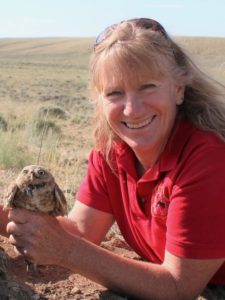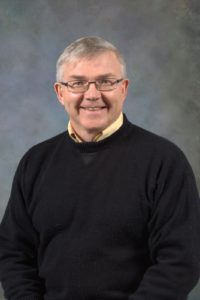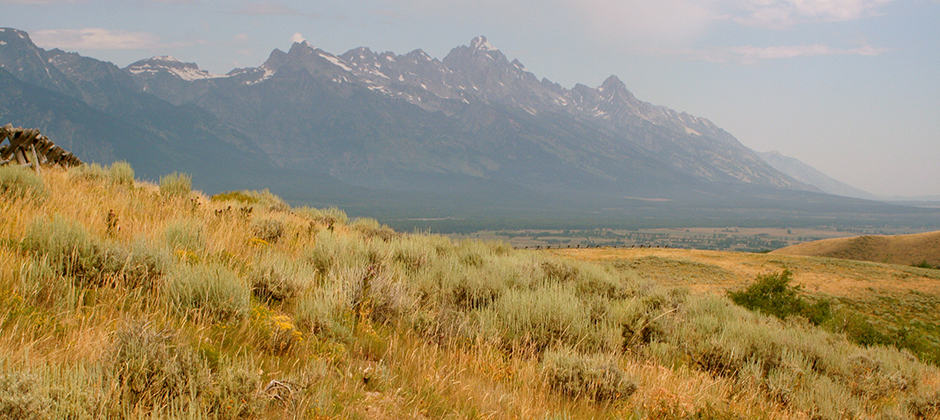Share this article
2020 TWS Elections: Central Mountains and Plains candidates
The ballot for The Wildlife Society’s 2020 elections includes candidates for the position of Central Mountains and Plains Section representative. See previous articles on candidates for TWS vice president and for Northeast Section representative.
Additional nominees may be submitted by any voting member in good standing, if supported in writing by 5% of the voting membership. The deadline for additional nominations is May 15.
Electronic ballots will be sent June 1 to all members with an email address. Members without an email address will receive a paper ballot in the mail. Voting will close June 30. Mailed paper ballots must be postmarked on or before June 30. Newly elected council members are scheduled to be installed at the 27th Annual Conference, Sept. 27-Oct. 1, 2020, in Louisville, Kentucky.
The candidates’ statements expressing their vision for The Wildlife Society and their interest in running for this council position are below.
Central Mountains and Plains Section Rep
Andrea Orabona
 My involvement with The Wildlife Society (TWS) began as an undergraduate at Colorado State University (CSU), thanks to several mentors who introduced me to our professional organization, and some of whom I am still in contact with today.
My involvement with The Wildlife Society (TWS) began as an undergraduate at Colorado State University (CSU), thanks to several mentors who introduced me to our professional organization, and some of whom I am still in contact with today.
At CSU, I served on a few Student Chapter committees and as Secretary/Treasurer, President-Elect, and President of the Student Chapter. That positive experience transitioned to serving at the state level with the Wyoming Chapter of TWS as chair of several committees (including the Celebrating Our Wildlife Conservation Heritage [COWCH] committee, of which I am still involved), At-large Board Member, Secretary, President-Elect and President.
From there, I learned the value of continuing to serve and remaining engaged at the Central Mountains and Plains Section level as an At-large Board Member, President-Elect, President, and immediate Past-President (a total commitment of 6 years). And in 2019, I was inducted as a TWS Fellow.
With the experience and knowledge I have gained over my 34-year wildlife career, my next focus and passion is to continue serving the wildlife resource and our professional organization at the level of Section Representative to The Wildlife Society Council. I envision a continued robust effort to ensure we promote and deliver science-based management and research decisions, and strive to include all who have the knowledge, passion, and skills to contribute to wildlife science.
If elected, please know that I will be open to conversations in any form (e.g., cell phone, text, email, in-person) to ensure that I am your spokesperson for our Central Mountains and Plains Section.
See the complete biographical sketch here.
Terry Messmer
 Climate change, species extinction, population growth, homelessness, hunger, poverty, depression and suicide. All of these issues are interrelated, and they can only be truly addressed by engaging the range of stakeholders most affected in discovery, research and management processes. The success of these processes is linked to reciprocity and transparency in information exchange, the identification of shared visions and common goals, an enhanced understanding of rules of law and social processes, and stakeholder direct engagement. Cumulatively, these actions create the trust required to enhance the connectedness of communities to government and governance. Building this trust requires all stakeholders to be fully engaged in processes to learn together about the landscapes, and each other, while they are actively managing landscapes. These processes also encourage innovation, new ideas, and risk taking.
Climate change, species extinction, population growth, homelessness, hunger, poverty, depression and suicide. All of these issues are interrelated, and they can only be truly addressed by engaging the range of stakeholders most affected in discovery, research and management processes. The success of these processes is linked to reciprocity and transparency in information exchange, the identification of shared visions and common goals, an enhanced understanding of rules of law and social processes, and stakeholder direct engagement. Cumulatively, these actions create the trust required to enhance the connectedness of communities to government and governance. Building this trust requires all stakeholders to be fully engaged in processes to learn together about the landscapes, and each other, while they are actively managing landscapes. These processes also encourage innovation, new ideas, and risk taking.
The controversy’s regarding what constitutes sustainable human and natural resources conservation, are rooted in deep differences in stakeholder values. The typical response of the scientific and management community to mitigate controversy has been “we need more science.” Because stakeholder’s values differ, more science may only increase the polarization. Contemporary examples of this “information deficit fallacy theory” are stakeholder views about climate change.
I believe for professional communities like The Wildlife Society to remain relevant, we must; 1) have leadership engaged at multiple levels, 2) a bottom-up hierarchy, 3) practice partnerships, 4) be true to a science-based approach, 5) operate at meaningful spatial scales, 6) be solution minded, not problem focused, and 7) unselfish in sharing of our resources.
See complete biographical sketch here.
Header Image: The ballot for The Wildlife Society’s 2020 elections includes candidates for the position of Central Mountains and Plains Section representative. ©Boss Tweed








